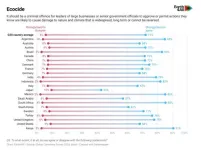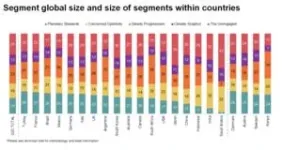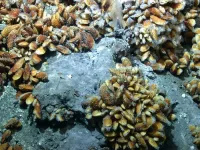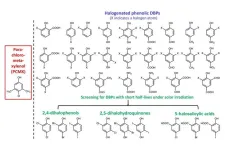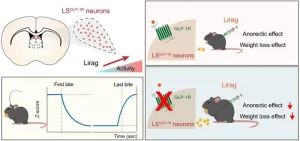(Press-News.org) Nearly three out of four people (72%) surveyed across 18 G20 countries1 support making it a criminal offence for government or leaders of large businesses to approve or permit actions which cause serious damage to nature and climate, finds major new research. This finding is part of the latest Global Commons Survey 2024, conducted by Ipsos UK and commissioned by Earth4All and the Global Commons Alliance (GCA).
The research follows recent landmark legislative changes, including in Belgium where ecocide was recognised as a federal crime earlier this year. Related laws have also been passed in Chile and France and ecocide bills have been proposed in Brazil, Italy, Mexico, the Netherlands, Peru and Scotland, among others.
The survey – which polled 18 G20 countries excluding Russia – reveals a deep-seated concern among citizens of the world's largest economies about the current state and future of our planet. Among respondents, 59% are very or extremely worried about the state of nature today, a slight increase from the 2021 Global Commons Survey. In addition, 69% agree that Earth is nearing tipping points related to climate and nature due to human activities.
The survey categorises respondents from 18 G20 countries1 into five "Planetary Stewardship Segments," revealing that ‘Steady Progressives’, ‘Concerned Optimists’, and ‘Planetary Stewards’ — groups advocating for strong action to protect the environment — make up the majority (61%) of people across the G20* countries surveyed. This marks a social tipping point, with more people now demanding action to protect the planet than those who do not.
The survey included respondents from 18 G20 countries: Argentina, Australia, Brazil, Canada, China, France, Germany, India, Indonesia, Italy, Japan, Mexico, Saudi Arabia, South Africa, South Korea, Turkey, United Kingdom, United States, plus four countries outside the G20: Austria, Denmark, Kenya, and Sweden.
Owen Gaffney, co-lead of the Earth4All initiative said: “The majority support (72%) for criminalising actions which allow serious damage to the climate surprised us. The majority of people want to protect the global commons; 71% believe the world needs to take action immediately. Our survey demonstrates that people across the world’s largest economies are acutely aware of the urgent need to safeguard our planet for future generations."
Jane Madgwick, Executive Director of GCA added: "People everywhere are very worried about the state of our planet and they’re feeling the pain already. Awareness that we are close to tipping points is high, as is concern that political priorities lie elsewhere. It all comes down to what we can do collectively to safeguard and restore the global commons which sustain all life on Earth and protect us from the most severe impacts of climate change. This is going to take bold leadership and a truly global effort, connecting actions across nations and from the ground up.”
Jojo Mehta, Co-founder and CEO of Stop Ecocide International, said: “We’re seeing significant policy shifts in favour of ecocide legislation at the domestic, regional, and international levels. Most notably, at the start of this year, the European Union included ‘qualified offences’ in its newly revised Environmental Crime Directive that can encompass ‘conduct comparable to ecocide.’ This means EU member states now have two years to bring these rules into national law - a huge moment felt across the globe.”
“We know this policy-level progress has been significantly driven by widespread civil society demand. The new Global Commons Survey makes it obvious that there is already a strong foundation of public support for this law. People clearly understand that the most severe forms of environmental destruction harm all of us, and that there is real deterrent potential in creating personal criminal liability for top decision-makers. Damage prevention is always the best policy, which is precisely what ecocide law is about.”
Gender disparities in environmental concern
The survey conducted across 18 G20 countries1 also uncovered gender differences in environmental concern. Women tend to exhibit higher levels of concern about the state of nature today and for future generations than men; 62% of women are extremely or very worried about the state of nature today, compared with 56% of men, and 74% of women believe that major action to address environmental issues should be taken immediately within the next decade, compared with 68% of men.
Just 25% of women believe that many claims about environmental risks are exaggerated while 33% of men do. Women are also significantly less likely to believe technology can solve environmental problems without individuals having to make big lifestyle changes (35% compared with 44% of men).
Regional differences in perceived exposure to climate change
The survey found that people in emerging economies such as India (87%), China (79%), Indonesia (79%), Kenya (73%) and Turkey (69%) feel more personally exposed to climate change compared to those in Europe and the United States. Those who perceive themselves as highly exposed to environmental and climate-related risks also show the highest levels of concern and urgency regarding climate action. This group is most likely to link human and planetary health and see benefits in addressing environmental issues.
Data from the survey released in June showed 71% believe urgent action is needed this decade to address environmental risks and reduce carbon emissions.
Planetary Stewardship segments
For the first time, the Ipsos survey segmented G20 respondents according to attitudes to planetary stewardship. Five distinct audience segments were identified:
Planetary Stewards: Driven by a strong sense of urgency and responsibility towards the environment, this group advocates for systemic change (political and economic) to address environmental challenges. They are characterised by their high levels of concern and activism, with 97% stating the need for immediate action to tackle climate change. Planetary Stewards believe in the close connection between human and planetary health and tend to show strong support for legal measures to protect the environment.
Concerned Optimists: This group blends high environmental concern with optimism about the future. Concerned Optimists typically support immediate environmental action and are confident that addressing climate change can bring widespread benefits to people in their country but show optimism about the future.
Steady Progressives: Pragmatic and moderate in their approach, Steady Progressives seek balanced solutions to environmental issues. They tend to acknowledge the need for urgent action but prefer gradual reforms within existing systems.
Climate Sceptics: This group dismisses climate and environmental concerns. Climate Sceptics tend to oppose policies which address climate change. They are more likely than the G20 average to prioritise individual liberty and limited government intervention, and less likely to think either that immediate environmental action is needed or that the earth is close to environmental tipping points because of human activities.
The Unengaged: This group shows a lack of interest and engagement in environmental and political issues. They are typically indifferent towards environmental concerns and less likely than the G20 average to support significant changes to political and economic systems.
Across those surveyed in the G20, Planetary Stewards, Concerned Optimists and Steady Progressives comprised the majority (61%) of respondents. This marks a social tipping point, where more people care for, and want action to protect, the planet than those who do not. Within G20 countries surveyed1, Planetary Stewards make up the largest groupings in Turkey (28%), France (27% - joint largest group with the Steady Progressives), Brazil, (26%), and Mexico (26% - joint largest group with the Steady Progressives). The Unengaged make up the largest groups in Germany, Italy, Japan, and Saudi Arabia. Across the G20*, just 13% of people fall into the Climate Sceptic group, according to the survey results.
Owen Gaffney concluded, “We found that the idea of planetary stewardship is strongest in emerging economies like Brazil, Argentina, South Africa, and Kenya.”
G20 countries represent around 85% of the global GDP, 78% of greenhouse gas emissions, over 75% of the global trade, and about two-thirds of the world population.
* * * * *
The full Ipsos research will be available at the following link as of 6 September 2024: https://earth4all.life/global-survey-2024/
In addition to a global report, regional reports for all surveyed countries are available.
Ipsos surveyed 22,000 participants aged 18 to 55-75 across 22 countries. This included 1,000 people in each of the following 18 G20 countries: Argentina, Australia, Brazil, Canada, China, France, Germany, India, Indonesia, Italy, Japan, Mexico, Saudi Arabia, South Africa, South Korea, Turkey, United Kingdom, United States, plus four countries outside the G20: Austria, Denmark, Kenya, and Sweden. Interviews were conducted online between 5 March and 8 April 2024.
Overall percentage results are an arithmetic average of national results across the 18 G20 countries surveyed.
Quota sampling was used, and in each country, data are weighted to be representative of the national population on age, gender, region and working status. Where results do not sum to 100, this may be due to rounding, multiple responses, or the exclusion of ‘don’t know’ categories.
For the segmentation analysis, ‘ensemble’ clustering techniques were used. Rather than running a cluster analysis once, ensemble techniques run many possible solutions that through an iterative process converge on a solution that is highly stable and reproducible. The base size for the segmentation is 16,841, based on all valid responses once those giving ‘don’t know’ or ‘prefer not to say’ responses to specific questions are removed.
The research was commissioned by Earth4All and the Global Commons Alliance. Supporting partners include the Policy Institute at King’s College London, ISWE and the Wellbeing Economy Alliance.
About Earth4All
Earth4All is a vibrant collective of leading economic thinkers, scientists, and advocates, convened by The Club of Rome, the BI Norwegian Business School, the Potsdam Institute for Climate Impact Research and the Stockholm Resilience Centre.
Earth4All builds on the legacies of The Limits to Growth and the Planetary Boundaries frameworks. Earth for All: A Survival Guide for Humanity, was published in September 2022 and presents the results of a major two-year research collaboration.
Earth4All advocates for five key turnarounds to achieve wellbeing for all within planetary boundaries:
Eliminate poverty by growing the economies of the poorest countries through green investment and cancelling their debts to high-income countries.
Reduce inequality by increasing taxes on the top 10%, strengthening workers’ rights and introducing citizens’ funds to give everyone access to a nation’s wealth.
Empower women by increasing access to education, putting them in leadership positions and equalising pensions.
Transform food systems by cutting waste and stopping the conversion of wild landscapes to farmland.
Transform energy use by immediately phasing out fossil fuels, electrifying everything and seriously investing in renewables and energy efficiency.
www.earth4all.life
About The Global Commons Alliance
The Global Commons Alliance is a growing coalition of scientists, philanthropists, civil society groups, businesses, and innovators, enabling collective action to safeguard the global commons.
The Global Commons Alliance’s mission is to mobilize citizens, companies, cities, and countries to accelerate systems change, and become better guardians of the global commons.
https://globalcommonsalliance.org/
END
Causing environmental damage should be a criminal offense, say 72% of people surveyed in G20 countries
69% believe Earth is close to climate and nature tipping points
2024-09-06
ELSE PRESS RELEASES FROM THIS DATE:
Natural probiotic discovered in UK newborns microbiomes
2024-09-06
Newborn babies have one of three pioneer bacteria in their gut shortly after birth, one of which could be used to develop new personalised infant therapeutic probiotics, researchers show.
In the largest study of UK baby microbiomes to date, researchers from the Wellcome Sanger Institute, University College London (UCL), and the University of Birmingham, used whole genome sequencing to analyse stool samples from 1,288 healthy infants, all under one month old from the UK Baby Biome Study1.
This research, published today (6 September) ...
Hijacking the command center of the cell: nuclear parasites in deep-sea mussels
2024-09-06
Most animals live in intimate relationships with bacteria. Some of these bacteria live inside the cells of their hosts, but only very few are able to live inside cell organelles (structures inside the cell, like organs in the body). One group of bacteria have figured out how to colonize the nuclei of their hosts, a remarkable feat given that the nucleus is the control center of the cell.
To date, nothing is known about the molecular and cellular processes that these intranuclear bacteria use to infect and reproduce in animal hosts. A group of scientists from the Max Planck Institute for Marine Microbiology in Bremen, Germany, now presents the first in-depth analysis ...
The heat generated by the tissues of some plants has played a crucial role in the evolutionary history of insect pollination
2024-09-06
Thermogenesis is a process by which organisms generate internal heat. Although it is usually associated with animals, some plants have also developed this ability. This metabolic process allows certain parts of the plant, such as flowers and inflorescences, to raise their temperature above that of the surrounding environment. Today, these plants, which include cycads and some angiosperms (flowering plants), rely on insects for pollination. The heat they generate helps volatilize and disperse floral fragrances and other chemical compounds that attract insects such as beetles, flies, and ...
Global experts help nanomedicines DELIVER on healthcare promise
2024-09-06
They’re tiny drug-delivery systems 1000 times smaller than a human hair, but while nanomedicines have long been hailed as the future for treating debilitating and life-threatening diseases, their journey from lab to patient has many challenges.
Now, new findings from a global team of expert scientists in academia and industry has generated world-first research quality standards that will help slash costs and reduce the time it takes to develop advanced nanomedicine treatments and make them available for patients.
Published in Nature Nanotechnology today, and led by the University of South Australia’s Dr Paul Joyce and the University ...
Galaxies are much much bigger than we thought
2024-09-06
If this galaxy is typical, then the study, published today in Nature Astronomy, indicates that our galaxy is already interacting with its closest neighbour, Andromeda.
Where does a galaxy end and deep space begin? It seems like a simple question until you look more closely at the gas that surrounds galaxies, known as the circumgalactic medium.
The halo of gas surrounding the stellar disc accounts for about 70% of the mass of the galaxy – excluding dark matter – but until now has remained something of a mystery. In the past we have only been able to observe the gas by measuring the light from a background object, ...
AI helps distinguish dark matter from cosmic noise
2024-09-06
Dark matter is the invisible force holding the universe together – or so we think. It makes up around 85% of all matter and around 27% of the universe’s contents, but since we can’t see it directly, we have to study its gravitational effects on galaxies and other cosmic structures. Despite decades of research, the true nature of dark matter remains one of science’s most elusive questions.
According to a leading theory, dark matter might be a type of particle that barely ...
HKUST engineering researchers discover an effective and environment-friendly disinfectant
2024-09-06
A widely used disinfectant worldwide, chloroxylenol, has been associated with eco-toxicological threats in water environments due to its relatively high chemical stability and massive consumption. Researchers at the School of Engineering of the Hong Kong University of Science and Technology (HKUST) have discovered a promising alternative known as 2,6-dichlorobenzoquinone (2,6-DCQ), which works more effectively in combating certain common bacteria, fungi and viruses, and can be rapidly degraded and detoxified in receiving waters.
This groundbreaking study is led by Prof. ZHANG Xiangru from HKUST's ...
Excessive light pollution may increase risk of Alzheimer's, especially in younger people
2024-09-06
In some places around the globe, the lights never go off. Streetlights, roadway lighting, and illuminated signs can deter crime, make roads safer, and enhance landscaping. Undisrupted light, however, comes with ecological, behavioral, and health consequences.
In the US, some states have legislation in place to reduce light pollution; however, levels of light at night remain high in many parts of the country. Now, researchers there have investigated correlations between outside nightly light pollution and Alzheimer's disease (AD).
“We show that in the US there is a positive ...
Researchers reveal new central action target of the “weight loss miracle drug” GLP-1R agonists in mice
2024-09-06
A research group led by Prof. ZHU Yingjie from the Shenzhen Institute of Advanced Technology (SIAT) of the Chinese Academy of Sciences (CAS), has revealed the essential role of lateral septum (LS) neurons in mediating anorectic and weight-lowering effects of the anti-obesity drug— liraglutide in mice.
The study was published in the Journal of Clinical Investigation on Sep. 03.
Obesity is now among the top ten chronic diseases worldwide, causing a range of health issues and increasing the medical burden. Anti-obesity medications have shown greater efficacy than lifestyle changes and diet, with lower risks and fewer side effects ...
Youth igniting the flame of innovation: The third SynBio challenges held successfully in Shenzhen
2024-09-06
From August 7 to 10, the Third SynBio Challenges were held at the Guangming Tianan Cloud Park International Conference Center in Shenzhen, China.
The event was co-organized by Shenzhen Institute of Advanced Technology (SIAT) of the Chinese Academy of Sciences (CAS), Chinese Society of Biotechnology, Shenzhen University of Advanced Technology (SUAT), Shenzhen Institute of Synthetic Biology (iSynBio), Shenzhen Synthetic Biology Association, and the Shenzhen Industrial Innovation Center for Engineering Biology.
The SynBio Challenges aim to provide a platform for students to engage in exchange and competition within the synthetic biology ...
LAST 30 PRESS RELEASES:
Natural selection operates on multiple levels, comprehensive review of scientific studies shows
Developing a national research program on liquid metals for fusion
AI-powered ECG could help guide lifelong heart monitoring for patients with repaired tetralogy of fallot
Global shark bites return to average in 2025, with a smaller proportion in the United States
Millions are unaware of heart risks that don’t start in the heart
What freezing plants in blocks of ice can tell us about the future of Svalbard’s plant communities
A new vascularized tissueoid-on-a-chip model for liver regeneration and transplant rejection
Augmented reality menus may help restaurants attract more customers, improve brand perceptions
Power grids to epidemics: study shows small patterns trigger systemic failures
Computational insights into the interactions of andrographolide derivative SRJ09 with histone deacetylase for the management of beta thalassemia
A genetic brake that forms our muscles
CHEST announces first class of certified critical care advanced practice providers awarded CCAPP Designation
Jeonbuk National University researchers develop an innovative prussian-blue based electrode for effective and efficient cesium removal
Self-organization of cell-sized chiral rotating actin rings driven by a chiral myosin
Report: US history polarizes generations, but has potential to unite
Tiny bubbles, big breakthrough: Cracking cancer’s “fortress”
A biological material that becomes stronger when wet could replace plastics
Glacial feast: Seals caught closer to glaciers had fuller stomachs
Get the picture? High-tech, low-cost lens focuses on global consumer markets
Antimicrobial resistance in foodborne bacteria remains a public health concern in Europe
Safer batteries for storing energy at massive scale
How can you rescue a “kidnapped” robot? A new AI system helps the robot regain its sense of location in dynamic, ever-changing environments
Brainwaves of mothers and children synchronize when playing together – even in an acquired language
A holiday to better recovery
Cal Poly’s fifth Climate Solutions Now conference to take place Feb. 23-27
Mask-wearing during COVID-19 linked to reduced air pollution–triggered heart attack risk in Japan
Achieving cross-coupling reactions of fatty amide reduction radicals via iridium-photorelay catalysis and other strategies
Shorter may be sweeter: Study finds 15-second health ads can curb junk food cravings
Family relationships identified in Stone Age graves on Gotland
Effectiveness of exercise to ease osteoarthritis symptoms likely minimal and transient
[Press-News.org] Causing environmental damage should be a criminal offense, say 72% of people surveyed in G20 countries69% believe Earth is close to climate and nature tipping points
